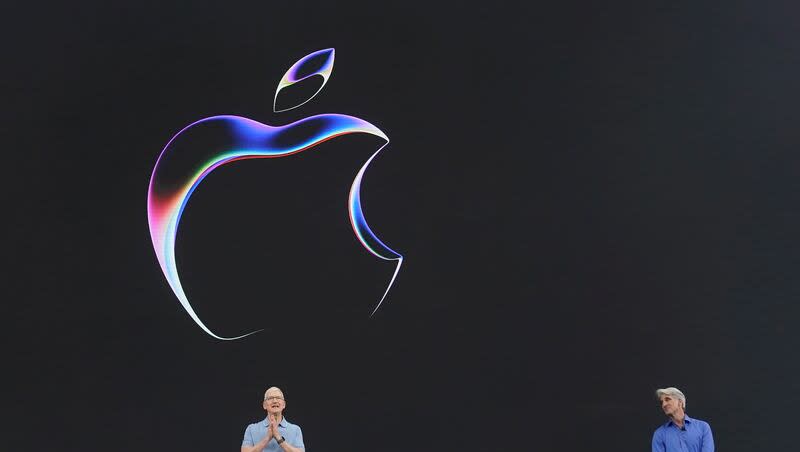Apple sued by DOJ, 16 attorneys general over alleged ‘monopoly’

The Justice Department and 16 state and district attorneys general filed a suit against Apple accusing the smartphone giant of breaking federal antitrust law.
The complaint was filed Thursday in the U.S. District Court for the District of New Jersey. Apple is accused of unlawfully monopolizing the smartphone market.
“No matter how powerful, no matter how prominent, no matter how popular — no company is above the law,” Deputy Attorney General Lisa Monaco said in a release announcing the suit. “Through today’s action, we reaffirm our unwavering commitment to that principle.”
“This case is about freeing smartphone markets from Apple’s anticompetitive and exclusionary conduct and restoring competition to lower smartphone prices or consumers, reducing fees for developers, and preserving innovation for the future,” the suit said.
“At Apple, we innovate every day to make technology people love — designing products that work seamlessly together, protect people’s privacy and security, and create a magical experience for our users,” an Apple spokesperson told the Deseret News in an emailed statement. “This lawsuit threatens who we are and the principles that set Apple products apart in fiercely competitive markets.”
“If successful, it would hinder our ability to create the kind of technology people expect from Apple — where hardware, software, and services intersect. It would also set a dangerous precedent, empowering government to take a heavy hand in designing people’s technology. We believe this lawsuit is wrong on the facts and the law, and we will vigorously defend against it,” the statement continued.
The suit identifies ways Apple allegedly unlawfully monopolizes the smartphone market, including: 1) enforcing rules that prevent or delay developers from innovating, 2) driving iPhone users away from services and products in competition with Apple and 3) employing app fees and revenue-share requirements for third parties.
Due to these and other measures Apple takes, the suit claims, “As a result, Apple faces less competition from rival smartphones and less competitive pressure from innovative, cross-platform technologies not because Apple makes its own products better but because it makes other products worse.”
This in turn, the complaint alleges, “leaves all smartphone users worse off, with fewer choices, higher prices and fees, lower quality smartphones, apps and accessories, and less innovation from Apple and others.”
The plaintiffs are requesting that the court prevent Apple from engaging in anticompetitive practices described in the suit.
“For years, Apple responded to competitive threats by imposing a series of ‘Whac-A-Mole’ contractual rules and restrictions that have allowed Apple to extract higher prices from consumers, impose higher fees on developers and creators, and to throttle competitive alternatives from rival technologies,” said Assistant Attorney General Jonathan Kanter, who is part of the Justice Department’s Antitrust Division.
“Today’s lawsuit seeks to hold Apple accountable and ensure it cannot deploy the same, unlawful playbook in other vital markets,” Kanter continued in his statement.
“Consumers should not have to pay higher prices because companies violate the antitrust laws,” said Attorney General Merrick B. Garland in a statement. “We allege that Apple has maintained monopoly power in the smartphone market, not simply by staying ahead of the competition on the merits, but by violating federal antitrust law.”
“If left unchallenged, Apple will only continue to strengthen its smartphone monopoly. The Justice Department will vigorously enforce antitrust laws that protect consumers from higher prices and fewer choices. That is the Justice Department’s legal obligation and what the American people expect and deserve,” Garland said.
The 16 state and district attorneys general who filed the suit include New Jersey, Arizona, California, District of Columbia, Connecticut, Maine, Michigan, Minnesota, New Hampshire, New York, North Dakota, Oklahoma, Oregon, Tennessee, Vermont and Wisconsin.
Arizona Attorney General Kris Mayes said, “Holding Apple accountable is critical to ensuring a competitive market where innovation can flourish and consumers can access a wide range of affordable products and services.”

